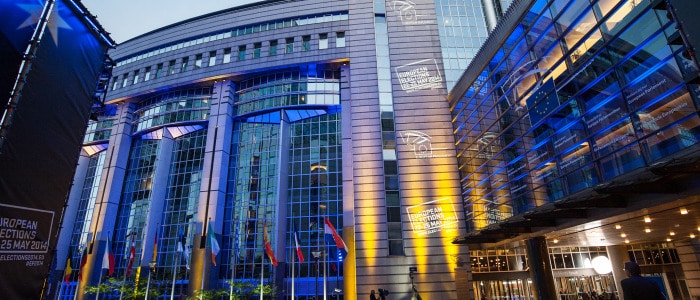Published
After the Election: Business as Usual
By: Fredrik Erixon
Subjects: European Union

The elections to the European Parliament hardly produced unexpected results. All the polls in the past weeks have shown that Front National and the UK Independence Party were close to becoming the biggest parties in the French and British elections. Nor was it surprising that the established centre-left and centre-right parties in Spain and Greece would substantially lower their share of the vote. Fringe parties have always performed better in European elections than in national elections – and that fringe parties of all shades were going to do pretty well after the last five years of crisis and crisis mis-management was not surprising.
What is perhaps more surprising is that the election results will have a very little impact on the European Parliament and the way it works. Populists and extremists will not have much of an impact on new legislation. Nor are they likely to seek such influence. They are more interested to use the Brussels platform to broadcast anti-EU messages to their national electorates and burnish their campaigns for forthcoming national elections.
Furthermore, the European Parliament is a compromise machine and any politician with ambitions to make a mark on policy must be able to build a majority for his or her proposals. Populists and extremists are not the types that seek compromises or to be part of building a larger coalition for a policy change in Brussels. In fact, much of their existence is based on opposing the way politics work. If, to take a theoretical example, the Front National will want to effect a change on issues regarding movement of labour, the MEPs from FN will have to accept supporting 90 percent of a legislation that they do not like in order to get 10 percent of their policy into the final legislation package. That is a bargain they will refuse.
So the main result of the election is that it will reinforce centrism and the established mainstream parties. The EPP group and the S&D group will most probably build some sort of a parliamentary coalition, perhaps with the participation of the liberals. Neither the EPP nor the S&D can command a majority by building a leftist or rightist sort of a coalition. Even if the idea of a coalition or a coalition agreement is an awkward one in the European Parliament (it is difficult to build a coalition when you are not in control of the executive or know what proposals that will be sent to you) this will not be very difficult.
This is how it already works in practice, in the legislative work in the committees. Even if the past five years saw the emergence of some sort of block politics, with the EPP taking the lead in some issues and getting the support from the Liberals and the Conservatives in the ECR group, the most important legislative processes did feature cooperation between the established parties across the block.
Part of that agreement will involve the role of the election for the choice of the next Commission President, but a coalition agreement is hardly going to be helpful for those demanding that the top candidate for the biggest party group should bag that job. All real candidates for that job are weakened by the election result and it has been an open secret for some time that key leaders in the EPP political family are not very keen to get Juncker as the Commission president. That job is probably going to go to someone else – and I have put my money on Jyrki Katainen.
The election result is likely to cool EU policy-making activity in the next five years. Even if the election had led to a parliament similar to the one we had in the past five years, the activity would have gone down. A good part of new policies from Brussels in the past five years was related to the crisis and even if you can make a good case for revisiting many of these policies, or re-doing them from scratch, the sentiment in Brussels and the main political capitals is largely that the “job is done”. The election result will prompt officials and political leaders to stay away from re-opening files because a centrist type of coalition in the Parliament would probably want to increase the degree of intrusiveness in economic and regulatory policy. Nor will the election result help those that want to see a change of the treaty. The election result will probably reinforce those that previously thought that a new treaty, with ensuing referenda, is politically toxic.
It is difficult to say if the election will negatively impact the trade agenda. A centrist coalition in the parliament will have enough votes to support new trade agreements. And most of the agreements under negotiation are already based on the political analysis that they need the backing from both the centre left and the centre right – centre left or centre right governments as well as parties in the European parliament. There may be issues like ISDS that will face bigger hurdles now, but a centrist agreement will also force parties and MEPs to “concentrate minds” and stay away from irresponsible pandering or political ploys. And regardless what you think about ISDS, the way the S&D group addressed the issue in last period of the previous parliament had very little to do with substance.
In a strange kind of way, the result of yesterday’s elections is “business as usual”. The idea among the centrist establishment parties that now is the time to push for a greater role of the European Parliament in the shaping of EU policy will be moderated. But nor will the election lead to a parliament more influenced by the populist and extremist parties that gained seats in the election.